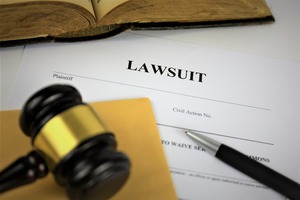Proving Loss of Enjoyment of Life in Personal Injury Cases

If you were in an accident and can no longer participate in activities you used to enjoy, you are probably feeling depressed and angry. You might be unable to attend family gatherings or participate in sports or any number of activities you enjoy. Perhaps it is difficult to work or travel.
You may be wondering, Can you sue someone for the loss of enjoyment of life? The answer is yes, you can. The knowledgeable injury attorneys at Fadduol, Cluff, Hardy & Conaway, P.C., are here to help you hold the person responsible for your injury accountable.
For a free consultation, please call (800) 433-2408 or send us an online message today.
What Is Loss of Enjoyment of Life?
Loss of enjoyment of life is one type of loss that you can recover for if you are injured in an accident and is considered “noneconomic damages.”
Noneconomic damages compensate you for the emotional and psychological harm caused by your injury. They are called noneconomic damages because, unlike economic damages, they compensate you for non-monetary losses.
When you sue for loss of enjoyment of life, you are seeking compensation for being unable to enjoy the same activities and experiences you enjoyed before your injury.
While it is difficult to put a dollar amount on being able to hike if you’re an avid outdoors person or to run around with your children, loss of enjoyment of life damages are meant to compensate you for those losses.
What Injuries Result in a Loss of Enjoyment of Life?
Nearly any type of injury can cause loss of enjoyment of life. People who have suffered severe or catastrophic injuries are especially likely to be unable to enjoy the same activities they did before their accident. There are a few types of injuries for which victims often seek loss of enjoyment of life damages.
Burn Injuries
Burns can greatly affect a person’s life and ability to participate in activities they previously enjoyed. People who suffer severe burn injuries are also likely to suffer a loss of enjoyment of life. This is because burns can alter a person’s level of mobility and agility. They can cause long-term pain and discomfort. And they can negatively impact your enjoyment of life by permanently altering your appearance.
There are three categories of burn injuries:
- First-degree burns,
- Second-degree burns, and
- Third-degree burns.
While first-degree burns often heal on their own, more severe burns can have negative impacts on your quality of life that cause loss of enjoyment of life.
Spinal Cord Damage
An injury to the spinal cord can completely alter every facet of a person’s life.
Spinal cord damage can happen in many types of accidents, but some of the most common causes include the following:
- Playing contact sports such as football,
- Diving into pools,
- Being involved in a car collision, and
- Falling from a ladder.
No matter how it occurs, a spinal cord injury can be devastating. It can result in a loss of enjoyment by keeping a person from being able to play with their children, work, or enjoy the hobbies they once did.
Paralysis
Paralysis can have varying levels of severity. Aside from the physical effects, paralysis also causes emotional harm because victims are often no longer able to participate in the same activities they enjoyed before their injury.
Paralysis can prevent a person from doing the following:
- Walking or completing daily activities without assistance,
- Working their previous job, and
- Participating in hobbies.
If you or a loved one suffered paralysis due to someone else’s negligence or conduct, an attorney can help you recover compensation for loss of enjoyment of life and other damages.
How Can You Prove Loss of Enjoyment of Life?
Now you know the answer to the question “Can you sue someone for the loss of enjoyment of life” is yes. But how do you prove loss of enjoyment? Courts examine various factors to determine whether someone is eligible to recover compensation for loss of enjoyment of life.
Some of the factors a court might consider include the following:
- The work history of the victim,
- The age of the victim,
- The victim’s education level,
- The activities the victim can no longer engage in,
- The severity of the victim’s injuries, and
- Future medical problems the victim is facing.
To prove loss of enjoyment, you will need to show that you used to enjoy certain activities and have now lost the ability to engage in them. Your attorney can gather and present evidence to make your loss of enjoyment claim stronger.
Your attorney may have your family and friends testify about how your injury has limited your ability to participate in the activities you used to enjoy. They might also use your medical records or the opinions of experts to establish that your injury has had a detrimental impact on your quality of life and limited what you are able to do.
How Our Attorneys Can Assist You
At Fadduol, Cluff, Hardy & Conaway, we have over 30 years of experience protecting the rights of injured clients so that they can seek justice. Our attorneys can answer all of the questions you have about a loss of enjoyment of life lawsuit and help you understand your legal rights and options.
We have helped injured people in New Mexico and Texas recover tens of millions of dollars of compensation. And we can help you fight for the compensation you deserve. Contact us online or call (800) 433-2408 today to schedule a free consultation.
